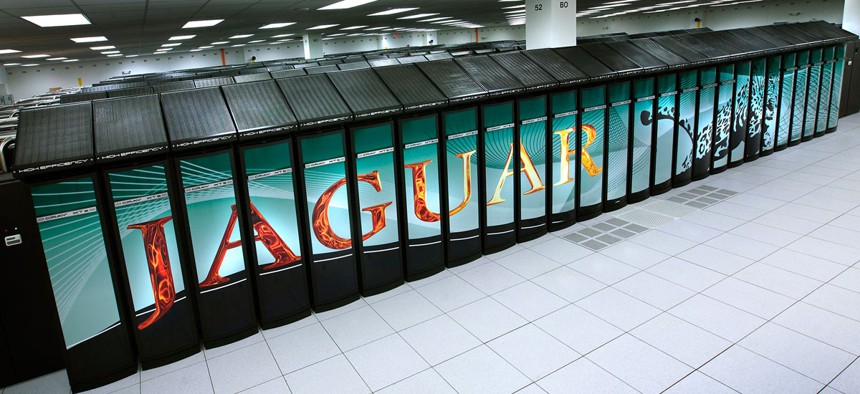House OKs Bill to Promote ‘Exascale’ Supercomputing

The Cray XT Jaguar features more than 224,000 processing cores, each with 2 gigabytes of local memory. Oak Ridge National Laboratory
The bill would require the Energy Department to research supercomputing technology, especially for reducing power consumption.
The House on May 19 approved legislation that would require the Energy Department to invest in supercomputing research.
The American Super Computing Leadership Act of 2015 tasks DOE with researching the technology, especially if it can increase computing capability while consuming relatively low power levels. It would also require DOE to work with national laboratories on this research.
A version of the bill passed in the House in 2014 but died in the Senate, according to Govtrack.
The bill is meant to promote "exascale" computing — technology whose speed approaches that of the human brain, according to a release from Rep. Randy Hultgren, R-Ill.
The bill was approved by the House Committee on Science, Space and Technology in March. In February, technologists from IBM briefed the House Science & National Labs Caucus (co-chaired by Hultgren, who introduced the bill) on technology designed to simulate human neural synapses, which could eventually used to create a sort of "brain in a box."
That technology, called "systems of Neuromorphic Adaptive Plastic Scalable Electronics," or syNAPSE, is partially funded by a grant from the Defense Advanced Research Projects Agency, which is seeking low-power computers that could scale to the size found in living organisms.
The House also passed the Department of Energy Laboratory Modernization and Technology Transfer Act of 2015, intended to make transferring federal research into the private sector easier.





